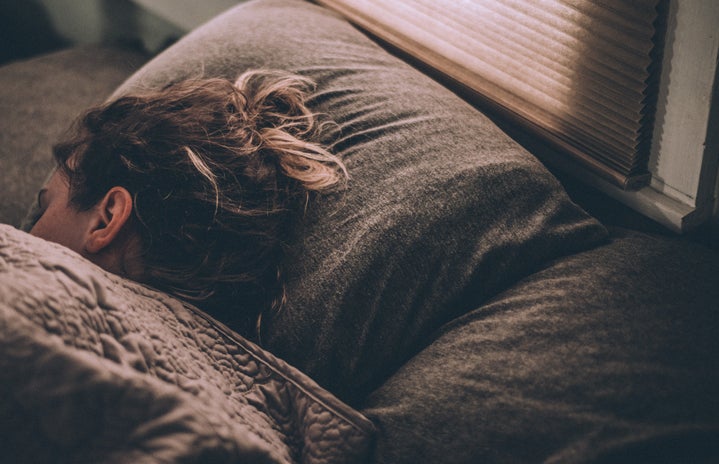In college, it seems like the norm is pulling all-nighters before exams and partying until 2am on the weekends. FOMO is real, and we worry about whether not we may be missing something because of sleep. However, sleep is important and can play a role in your success.
Sleep deprivation is a serious issue among the college student population. The National College Health Assessment collects data on college students across the country related to various health activities, including sleep. At the time this data was collected (Spring 2019), 25.2% of students stated that sleepiness was “more than a little problem” and 13% stated it was a “big problem”. If you’re having difficulty falling or staying asleep, we’ve got some tips to help.
With the busyness and stress of college life, sleep can easily fall to the backburner. It often feels like the task at hand is more important than sleep. Even when we set aside those 8 hours for sleep, our minds can wander to our different responsibilities and stressors, which can affect our quality of sleep.
There are some easy ways to improve the quality of your sleep that even the busiest student can fit into their schedule. We know that a lot of us run on coffee, but avoiding caffeine in the afternoon and evening is a great way to help you fall asleep more easily. Another simple thing you can do is staying away from your screens half an hour before going to sleep. I know how easy it is to fall down that tik tok rabbit hole, but putting the phone down will actually help you fall asleep. Seeking natural light, like opening your curtains instead of using your fluorescent lights, can help your body regulate melatonin (the sleep hormone) during the day. Sleeping in a cool environment also promotes sleep, so check in with your roomie and then crank down the thermostat. It also helps to make sure that you’re only using your bed for sleeping and sex; avoid doing school work or eating in bed (ever snuggle into bed and feel crumbs on your skin?) so that your brain can associate your bed with sleep and not other activities.
If you’re experiencing racing thoughts before bed and often struggle to get into the sleep mindset, meditation can help. The idea of meditation may seem scary, but really all you need to do is focus on your breathing. Apps like Insight Timer offer thousands of free meditations to choose from. You can also try techniques like boxed breathing, which involves breathing in, holding your breath, and breathing out for a period of time. There are tons of different graphics out there to follow along to help you slow your breath.
If sleep problems persist or you suspect that you have a sleep disorder, there are some great on-campus resources that you can use to get help. There is a free Sleep Well Group that consists of 4 sessions focused on addressing various sleep concerns. Sign up using myhealthspace. There’s also wellness coaching, where you’ll meet one-on-one with a trained wellness coach who can help you develop and achieve goals related to sleep habits. UofSC students can utilize wellness coaching services for free and there is no cap on this service. Apps like Headspace, Calm, and Insight Timer are also great resources to help quiet your mind before falling asleep.



